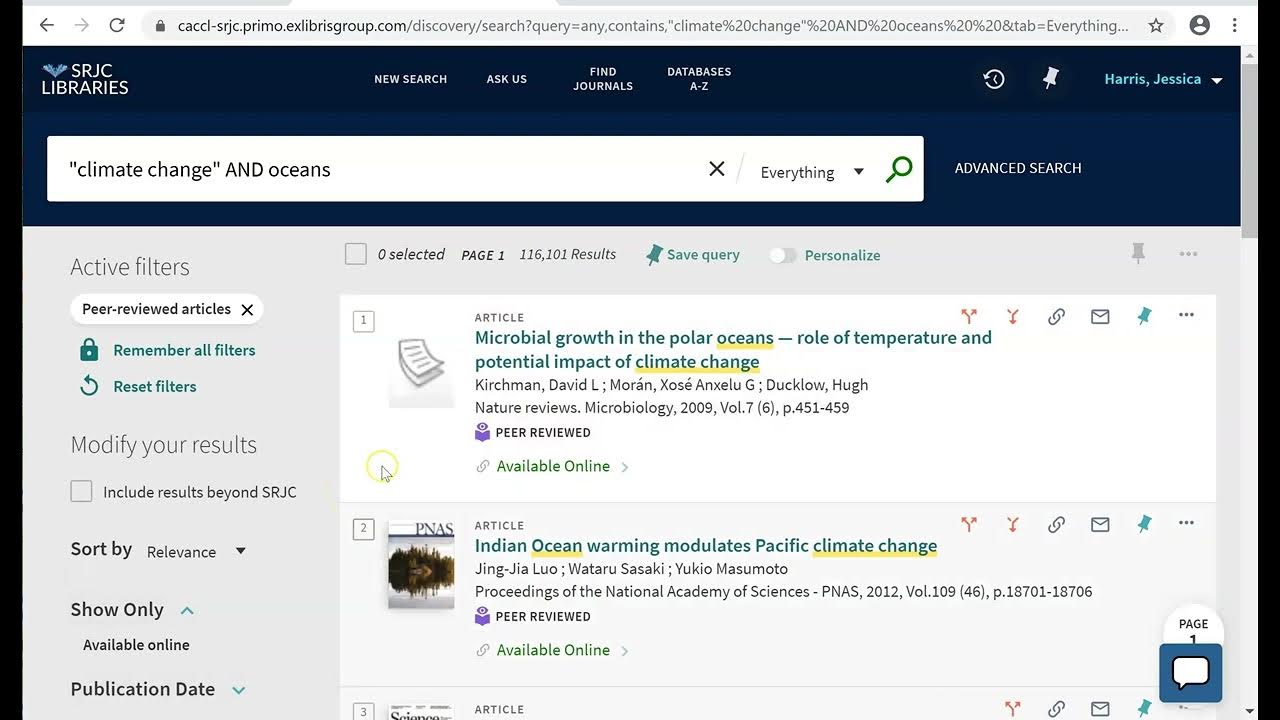How Library Stuff Works: Boolean Modifiers "", *, ( )
Summary
TLDRPart II of McMaster Libraries' Boolean Searching Series teaches advanced search techniques using Boolean Modifiers. Quotations ensure exact phrase matches, narrowing results. The asterisk allows for word variations, expanding search scope. Brackets, like in algebra, dictate search order, ensuring accurate query interpretation. These tools refine searches, guiding users to precise information. For further assistance, librarians are available for one-on-one consultations.
Takeaways
- 🔍 Boolean Operators (AND, OR, NOT) are fundamental for effective searches, but additional modifiers are needed for precise results.
- 📝 Quotation marks instruct the search engine to find documents containing the exact phrase enclosed within them.
- 🔑 Using quotes helps in narrowing down search results by ensuring the search engine looks for the specific multi-word concept.
- 🌟 The asterisk acts as a truncation symbol, allowing the search engine to retrieve documents with various word endings starting with a common root.
- 🔄 Truncating a word with an asterisk broadens the search to include different forms of the word, enhancing the retrieval of relevant documents.
- 🗄 Brackets, or parentheses, are crucial for setting the order of operations in a search query, ensuring the search engine interprets the query as intended.
- 🧮 Brackets help in grouping terms and Boolean Operators, directing the search engine to apply the right operators to the correct terms first.
- ❌ Including brackets prevents misinterpretation by the search engine, which could lead to incorrect or unexpected search results.
- 📚 The McMaster Libraries Boolean Cheat Sheet is a valuable resource for guidance on using Boolean search techniques effectively.
- 💬 Librarians are available for assistance, either in-person or through research consultations, to help refine search strategies and understand Boolean searching.
Q & A
What are the three Boolean operators mentioned in the McMaster Libraries Boolean Searching Series?
-The three Boolean operators mentioned are AND, OR, and NOT.
How do quotation marks function in a search query?
-Quotation marks are used to direct the search engine to find articles that contain the exact phrase as it is enclosed within the quotations.
What is the purpose of using asterisks in a search?
-Asterisks are used to account for different variations of a word by truncating the word after the last shared letter and adding an asterisk, which tells the database to include all variations of the word that start with the given letters.
Why are brackets important in a search query?
-Brackets, or parentheses, are crucial for directing the database to apply specific Boolean operators first, just like in algebra where operations within brackets are performed before others.
What is the role of the Boolean modifier NOT in a search?
-The NOT operator is used to exclude documents containing a specific term from the search results.
Can you provide an example of how to use quotation marks in a search query from the transcript?
-An example from the transcript is using 'dementia therapy' in quotes to retrieve articles that contain the exact phrase 'dementia therapy'.
How does the asterisk help in broadening the search results?
-The asterisk allows the search engine to include all variations of a word starting with a specific set of letters, thus broadening the search to include terms like 'therapy', 'therapies', and 'therapeutic'.
What does the acronym BEDMAS stand for and how is it related to search queries?
-BEDMAS stands for Brackets, Exponents, Division/Multiplication, Addition/Subtraction, and it is related to search queries as it dictates the order of operations, emphasizing that operations within brackets should be performed first.
Why might search results be wonky without the use of brackets?
-Without brackets, the search engine might interpret the search differently from the user's intent, leading to incorrect or unexpected results due to the misapplication of Boolean operators.
What resource is recommended for further clarification on Boolean searching?
-The McMaster Libraries Boolean Cheat Sheet is recommended for further clarification or as a refresher on Boolean searching techniques.
How can users get assistance with their research queries at McMaster Libraries?
-Users can visit the libraries on campus or book a research consultation for one-on-one assistance with their research queries.
Outlines

Cette section est réservée aux utilisateurs payants. Améliorez votre compte pour accéder à cette section.
Améliorer maintenantMindmap

Cette section est réservée aux utilisateurs payants. Améliorez votre compte pour accéder à cette section.
Améliorer maintenantKeywords

Cette section est réservée aux utilisateurs payants. Améliorez votre compte pour accéder à cette section.
Améliorer maintenantHighlights

Cette section est réservée aux utilisateurs payants. Améliorez votre compte pour accéder à cette section.
Améliorer maintenantTranscripts

Cette section est réservée aux utilisateurs payants. Améliorez votre compte pour accéder à cette section.
Améliorer maintenantVoir Plus de Vidéos Connexes
5.0 / 5 (0 votes)






